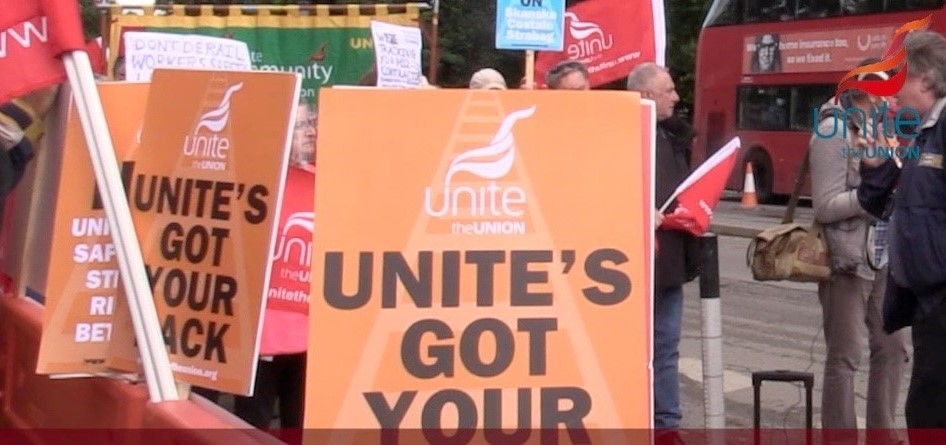â€A strong sector in a strong union’
If there is any sector where workers certainly need a union it is construction – and now these workers will have even stronger protection at work.
The merger of UCATT (the union for construction allied trades and technicians) on January 1 to join Unite’s existing construction sector means that for the first time all construction trades are represented by one union.
This will give workers a stronger voice and much greater scope for organising and recruiting new members.
While construction is rewarding and potentially a well remunerated trade the way the industry is organised poses challenges. Workers on private sector sites suffer from operating in a casualised environment – they are the original gig economy workforce. The vast majority of major construction companies barely employ a single construction worker. Instead the work is sub-contracted (often repeatedly) and then workers are usually recruited via agencies.
And to further dilute the employer/employee relationship the workers are often either engaged through an umbrella company or employed on some kind of false self-employment contract.
Grim
Both options are grim. The so-called â€self-employed’ have all the characteristics of an employee but are denied even the most basic employment rights – holiday pay, sick pay and they can be dismissed without warning or explanation.
Workers employed under the yoke of an umbrella company are treated as both the employer and employee for tax purposes. They have to pay both employee’s and employer’s national insurance contributions which means they are paying 46 pence in the pound on tax and national insurance on eligible earnings.
Umbrella company workers are also likely to have rolled up holiday pay (they are paid a weekly amount for holidays and then nothing when they actually take time off). If you pay into a pension you pay both the employers’ and employee contributions. And to cap it all, workers are charged at least £20 for the privilege of being paid in this way.
As in most industries, it is the lowest paid and those workers who have the fewest skills that are most vulnerable to mistreatment and exploitation.
In the private sector there is virtually no such thing as a â€fixed establishment’. Even the best organised site is unlikely to be in existence for more than two or three years. During this time hundreds of different workers will have been employed – for some trades a three month period of employment is a long engagement.
Unite is at the forefront of the campaign to end false self-employment and to outlaw umbrella companies. Having the power and influence of Unite behind you is the best defence to the worst aspects of the industry.
“Unite members in construction are better protected, receive the correct rate for the job and have the strength of the union behind them if there is a problem at work,” said Brian Rye, Unite national officer for construction.
Casual nature of work
The casual nature of the industry also affects issues beyond pay and condition and in particular, safety. Construction has the highest number of workplace fatalities and the way the industry operates is a major factor in how and why these deaths and injuries occur.
The refusal of companies to employ workers means the number of apprenticeships being offered is appallingly low. Put simply, if you don’t employ anyone you are not going to invest in training the workers of tomorrow. So there is an ever increasing skills gap and the number of construction apprentices currently being trained is far below the number of new entrants needed by the industry.
Casualisation and the transitory nature of the industry were major factors behind the blacklisting scandal which cast a dark stain on construction.
But if you secure the correct training and are fully skilled the industry can be lucrative. On average skilled trades will earn ÂŁ27,000 a year, while a lucky few bricklayers in the central London hotspot have received pay in excess of ÂŁ1,000 a week.
By bringing all construction workers under one roof Unite is determined to meet the challenges of the industry head on. Gail Cartmail, acting general secretary, said, Unite now is a stronghold for organising construction workers in the UK and Ireland. As the largest union Unite has resources to tackle unfair working practices and build on our successes in both the private and public sectors.
“Unite will work tirelessly to deliver good quality apprenticeships for the young men and women who are the future workforce,” she said.
“Apprenticeships and a commitment to direct labour are our bottom lines for major projects. A strong sector in a strong union is good news for all workers across the industry.”
The challenge for Unite is to ensure that all construction workers receive a fair day’s pay for a fair day’s work – and to stamp out the exploitation that remains all too prevalent.
 Like
Like Follow
Follow

